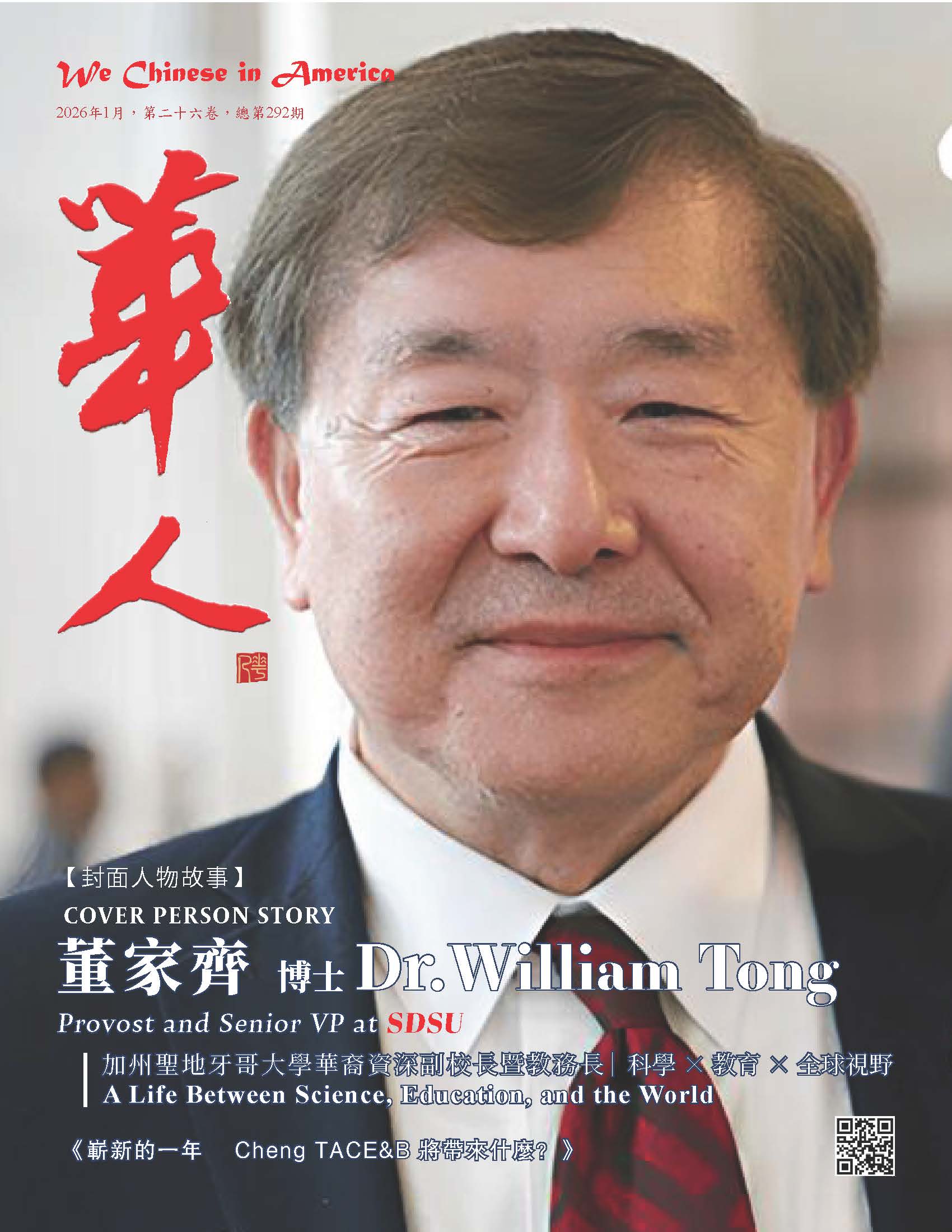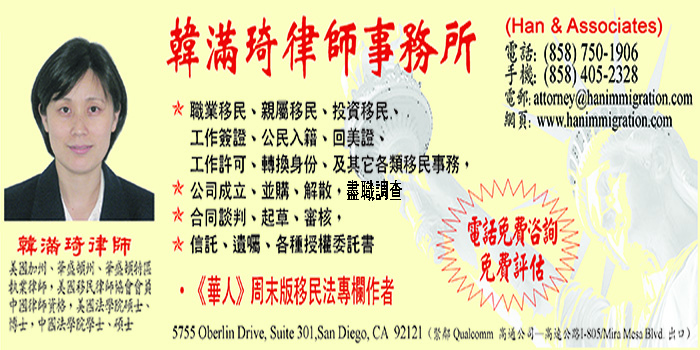
Taiwan's Health Insurance Plans to Abolish the Suspension System, Overseas Chinese Think It's Unfair
(We Chinese in America Media Editor Tang Zhao, February 25, 2022) The system of "reinstatement of insurance and reinstatement of insurance" for overseas Chinese may become history. Some overseas Chinese living in Southern California believe that this seems unfair to some overseas Chinese who have returned to Taiwan not long after each time. (United News Network)
According to Taiwan media reports, the system of "recovery of insurance" for overseas Chinese may become a thing of the past. The overseas Chinese in Southern California believe that it is not fair to abolish the suspension system for some overseas Chinese who have returned to Taiwan for a short time each time. However, there are also overseas Chinese who do not object to continuing to pay health insurance premiums but suggest that the government can develop a fairer review system. As for the dissatisfaction caused by the Taiwanese people over the return of overseas Chinese to Taiwan for insurance, most overseas Chinese also said that they never thought of abusing health insurance, just to protect their own health during their stay in Taiwan.
The National Health Insurance Association of the Ministry of Health and Welfare recently discussed a number of financial adjustment measures for health insurance. In addition to the plan to increase some of the burdens of drugs and inspections, the suspension system may also be abolished. In other words, the public will not be able to apply for health insurance suspension, returning to the principle of compulsory health insurance coverage, which is considered to "improve fairness".
Ms. Zhu, who lives in Orange County, is very dissatisfied with this development. She feels that this is unfair to overseas people because some people will not return to Taiwan for more than two years, but they still must pay fees to maintain their household registration, which will invisibly cause overseas people an extra expense. Ms. Zhu said that for her to have health insurance in Taiwan, she was only afraid that she might need to see a doctor in case of health problems when she returned to Taiwan. She did not intend to abuse health insurance at all.
Ms. Chen, who lives in Los Angeles, also said that when she returned to Taiwan to visit her parents every year, if she entered the country with a passport of the Republic of China, she had to enroll in health insurance, even if she went back for two weeks. But she did not plan to use health insurance at that time, wondering why household registration and health insurance should be tied together? Ms. Chen believes that it would be unfair for people who only stay in Taiwan for one to two weeks a year if the suspension system is abolished.
Another overseas Chinese said that he had joined the health insurance for more than ten years. At first, he went back to Taiwan to visit his parents for a short period of time, because he was afraid that he would have health insurance before he received health insurance. In the past ten years, she thought about the health insurance that she had used. Except for a routine check-up at the ophthalmology department when her father-in-law was hospitalized, she had never used health insurance. Even when she returns to Taiwan University for a colonoscopy every five years, she almost pays for it out of her own pocket, paying nearly NT$4,000 each time. She has not stopped paying health insurance fees in the past ten years. She does not understand why the health insurance would target on removing the flexibility on overseas immigrants. Compared with many Taiwanese people who regard doctor visits for rehabilitation as a daily activity, she believes that the health care expenses of overseas immigrants are negligible. She wonders how this will benefit Taiwan.
However, Mr. Lin, an overseas Chinese who has continued to pay health insurance for decades, said that whether the system is good or bad depends on individual’s opinion. He believes that compared with the medical expenses in the United States, Taiwan's health insurance costs at most 30 to 40 US dollars a month, which is not a lot of money, so he has not stopped insurance for decades. On the other hand, he also regards this move as support and encouragement for Taiwan's health care and believes that he has owed nothing to Taiwan.
Mr. Chen, an overseas Chinese, is not opposed to this possible new policy, but believes that the government should make decisions based on individual special reasons. Mr. Chen said that continuing to pay premiums is an extra expense for some overseas people, which may cause financial burdens, so they must stop and restore insurance. However, for overseas Chinese who are financially able, it is not a problem to continue to pay health insurance. He pointed out that this policy affects not this group of people, but those who are under economic pressure. He suggested that the government can develop a fairer review system, which may be reviewed based on factors such as income.
According to the current health insurance regulations, those who have been abroad for more than two years will lose their health insurance eligibility due to deregistration. Although those who have been abroad for less than two years are eligible for health insurance, they can still voluntarily apply for insurance suspension, and will not resume insurance after returning to Taiwan. Many people apply for suspension of insurance when they return overseas, and resume insurance as soon as they return to Taiwan to enjoy health insurance resources, which has caused a lot of criticism. For this reason, the second generation of health insurance requires reinsurers to pay premiums for at least three months.
(Source: United News Network)










